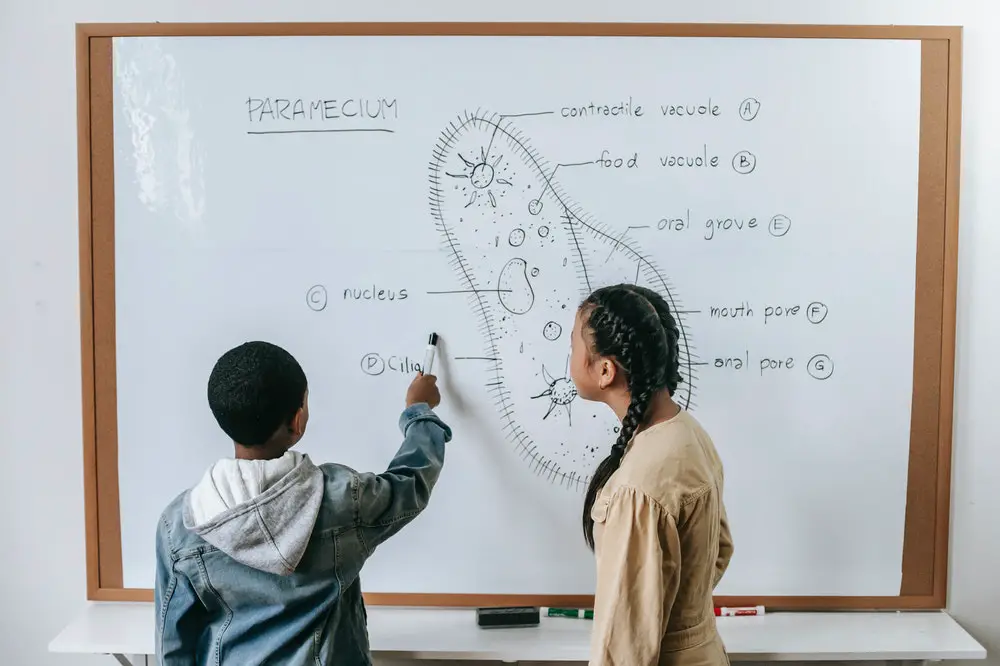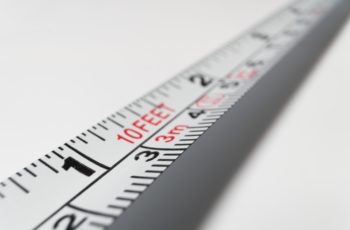Biology is a branch of natural science that studies living organisms and life processes. It covers a variety of interesting topics, such as evolution, ecology, cells, genetics, microorganisms, and the human being’s body. Try the following trivia biology quiz questions and answers to see how much you know.
Biology Quiz Questions And Answers

1. Which scientist is best known for his theory of evolution by natural selection, which is the foundation of modern evolutionary science?
A. Gregor Mendel
B. Charles Darwin
C. Louis Pasteur
2. Which of the following words refers to a baby shark?
A. A sharkling
B. A fry
C. A pup
3. Which is the most common element that accounts for more than 60 per cent of the human body?
A. Oxygen
B. Hydrogen
C. Carbon
4. Cell walls can be found in animal cells, plant cells, or both?
A. Plant cells
B. Animal cells
C. Both
5. Which of the following terms refers to a DNA change that leads to a new characteristic?
A. A revolution
B. A defection
C. A mutation
6. The Dutch scientist Antonie van Leeuwenhoek was the first person to observe which microorganism?
A. Viruses
B. Bacteria
C. Fungi
7. Photosynthesis mostly occurs in which part of plants?
A. Root
B. Bark
C. Leaves
8. Mycology is the branch of biology that studies what?
A. Fungi
B. Animal
C. Cell
9. Which of the following terms refers to animals that eat both animals and plants?
A. Herbivores
B. Omnivores
C. Carnivores
10. What is a deciduous plant?
A. A plant that loses all leaves each year
B. A plant that can bear fruits
C. A plant that can keep all leaves during the year
11. Which of the following big cats is the fastest animal on land?
A. Puma
B. Leopard
C. Cheetah
12. We can find wild bonobos, chimpanzees, and gorillas on which continent?
A. North America
B. South America
C. Africa
13. Unlike most species of fish, which body part does not exist in sharks?
A. Bones
B. Heart
C. Grills
14. Which part of the human body is responsible for filtering blood and releasing waste?
A. Liver
B. Kidneys
C. Heart
15. What was the first GMO or genetically modified crop plant in the world?
A. Corn
B. Tomato
C. Tobacco
16. Which is the only part of the human body that cannot repair itself?
A. Brain
B. Teeth
C. Liver
17. What is the smallest unit that can carry out life functions?
A. DNA
B. Cell
C. Tissue
18. Which of the following vitamins is needed for the process of blood clotting?
A. Vitamin A
B. Vitamin D
C. Vitamin K
19. The most severe competition for space, light, and food occurs in…
A. Distantly related species growing in the same habitats
B. Closely related species growing in the different habitats
C. Closely related species growing in the same niche or area
20. What is an ecosystem comprised of?
A. A biotic community
B. Non-living elements
C. Both
21. Which four letters in the English alphabet are used to denote the genetic code?
A. A N D C
B. R M O E
C. A T C G
22. What is the basic unit of classification in biology?
A. Class
B. Family
C. Species
23. What is the organic compound that provides energy in living cells?
A. DNA
B. ATP
C. HDL
24. Which of the following animals belongs to the cetacean family, which also includes dolphins?
A. Whales
B. Sharks
C. Tunas
25. The human brain can generate enough electricity to …
A. Power a lightbulb
B. Charge a mobile device
C. Catapult a goose over a vehicle
26. Benthos is the collective name of plants and animals that live on a … bottom?
A. River
B. Ocean
C. Lake
27. What is considered to be the largest living structure existing on Earth?
A. The Great Barrier Reef, Australia
B. Galapagos Islands, Ecuador
C. Amazon Rainforest, South America
28. Which ancient philosopher was the first one to propose the biological classification of animals and plants?
A. Plato
B. Pythagoras
C. Aristotle
29. Most of the enzymes in the body are made of what?
A. Fats
B. Proteins
C. Carbohydrates
30. Why can bats fly in dark?
A. Because they produce ultrasonic waves
B. Because they have sharp eyes
C. Because they are nocturnal
31. What is the definition of pollination?
A. The visiting flowers by insects
B. The germination of pollen grains
C. The transfer of pollen to stigma from anther
32. From where do plants get most of their nutrients?
A. Light
B. Soil
C. Atmosphere
33. Which of the following animals is considered the most highly intelligent mammal?
A. Dolphins
B. Elephants
C. Kangaroos
34. In addition to malaria, Anopheles mosquitoes also spread which of the following diseases?
A. Yellow fever
B. Dengue fever
C. Filariasis
35. During the process of photosynthesis, oxygen is released from what?
A. Carbohydrates
B. Water
C. Carbon dioxide
We hope you have a lot of fun and learn something helpful with these biology questions and answers. For more challenges, check out the following basic chemistry quiz or this trivia quiz about zodiac.


Dr.M.Rayappa
Very useful,informative
Kevi-Tuliko Shilunga
I just love this.
birku
very good
Musiimenta marriam
they are good questions
Asiya mustapha
I love it because it helps